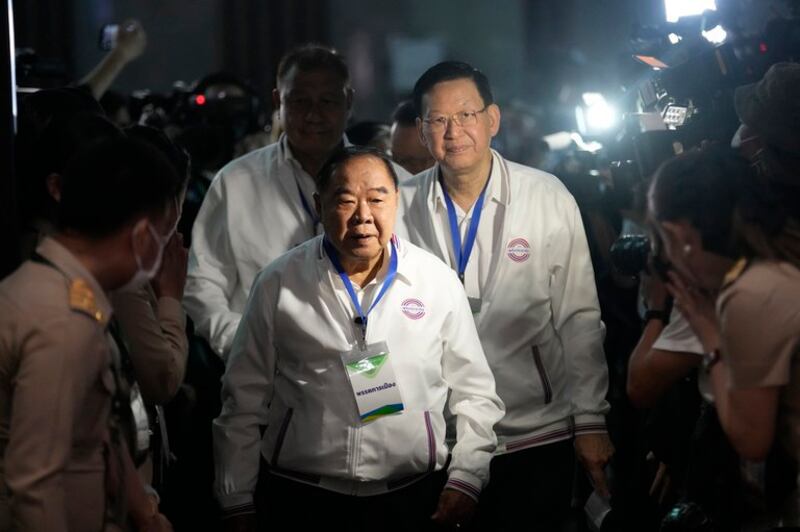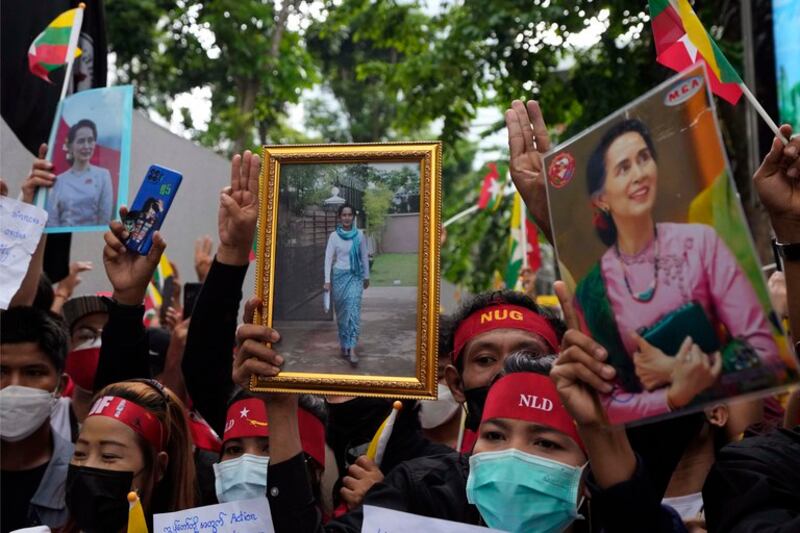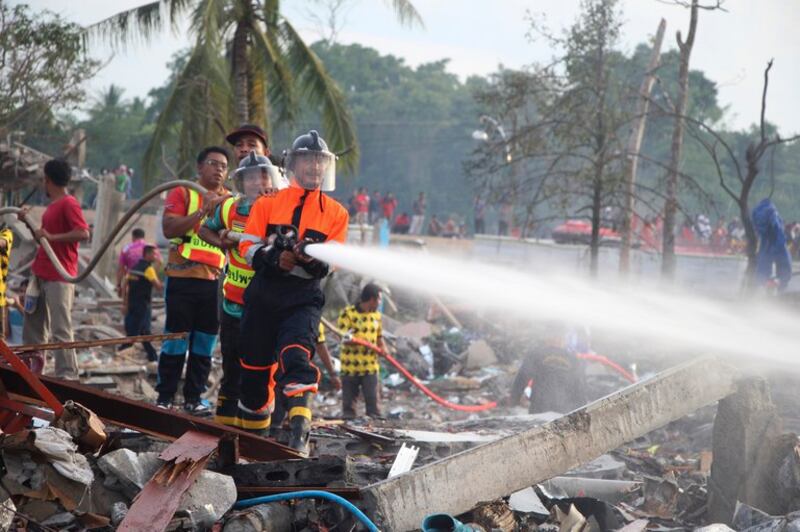After three months of post-polls uncertainty, Thailand finally has a government.
As expected, it's a conservative coalition led by Pheu Thai that includes Bhumjaithai and the two military-backed parties, Palang Pracharath and United Thai Nation. As such, Thailand foreign and defense policies under new Prime Minister Srettha Thavisin will represent continuity with the military-linked government that ran Thailand from 2014 until 2023.
Srettha is in a political bind.
He betrayed his supporters by breaking Pheu Thai's pledge to not to invite military-backed parties into his ruling coalition after they were thoroughly repudiated in the May 14 general election.
Srettha hopes he can win the electorate back following his party’s Faustian bargain by implementing a host of populist economic policies to benefit rural constituents in particular.
Pheu Thai promised a lot, and there are real questions about whether his government can afford the programs that include a monthly digital wallet, a three-year debt holiday for agricultural loans and other rural infrastructure investments.
At the same time, the former real estate tycoon needs to restart the stuttering Thai economy. Gross Domestic Product growth was just downgraded by Fitch Ratings to 2.8% from 3% for 2023. Exports have fallen for 10 consecutive months.
Because of this, control over the economic portfolios are far more important to Pheu Thai. Srettha plans to serve as finance minister, while Pheu Thai will hold the ministries of commerce and transportation.
Even as Pheu Thai will maintain the defense and foreign affairs ministries, neither Suthin Klangsaeng nor Parnpree Bahiddha-Nukara or his deputy, Jakkapong Sangmanee, are entering with experience or a progressive agenda. And inexperienced ministers will be at the mercy of the career permanent secretaries who are expected to promote the interests of the military and monarchy-backed state institutions.

For internal security, power is expected to rest in the hands of conservative members of the coalition. The interior ministry will be controlled by Bhumjaithai and the justice ministry is expected to be led by police Col. Tawee Sodsong, from Prachachat.
Even though outgoing Prime Minister Prayuth Chan-o-cha and his deputy, Prawit Wongsuwan, have resigned from Parliament and will not serve as cabinet ministers, as some had feared, their influence through their parties and patronage networks is deep. Indeed, Prawit’s brother, police Gen. Patcharawat Wongsuwan will serve as a deputy prime minister.
In the hours before Srettha met with the king to receive a royal endorsement for his government, Prayuth finalized the annual military reshuffle of 762 officers, ensuring that key allies and protégés were in place while denying his successor any influence over the military.
To achieve his economic goals, Srettha will need to be careful not to take on the military or its core interests. He will be using enough political capital with them to secure Thaksin's request for a royal pardon.
Prime Minister Srettha and his defense minister will have little say over the military’s annual promotions and appointments, continuing the military’s autonomy. The Pheu Thai government will maintain, or even seek, to increase the military’s U.S. $5.7 billion (nearly 200 billion baht) budget.
It is unclear whether his government will push the military to implement the proposal to cut bloated senior ranks. Thailand has well over 1,000 generals. In 2022, Prayuth's government claimed it cut that figure by 10% through retirements, with a stated goal of a 50% reduction by 2027.
Would a civilian government push the military leadership too hard on this? It’s more likely that Srettha and Suthin, the expected defense minister, will push for a smaller military and a decrease in the annual intake of draftees.
Foreign policy
While the Move Forward Party's Pita Limjaroenrat was more critical of China, this government is expected to be much more welcoming of Chinese trade and investment. One of Srettha's first meetings with a foreign diplomat was with the Chinese ambassador and his government is proposing visa-free entry for Chinese in order to boost tourism and investment.
The government is unlikely to put pressure on the Royal Thai Armed Forces to end their extensive military exercises with the People's Liberation Army. Likewise, this government is likely to be unwilling to press the military to stop buying Chinese weapons, in particular the current submarine deal.

Elsewhere, Srettha is likely to maintain Thailand's current Myanmar policy, broadly speaking. He is unlikely to confront the military or security services, which have made the kingdom a far less welcoming place for Myanmar's exiled opposition groups and refugees, nor will he end the practice of forcibly repatriating combatants seeking medical attention.
Indeed, Thailand is likely to continue to be a hostile environment for Lao, Khmer, and Vietnamese activists who continue to be abducted, forcibly returned home or killed, either with Thailand's blind eye or active support.
Srettha is expected to continue backing corporate Thailand, whose investments in Myanmar have grown since the February 2021 coup, according to Myanmar government data.
While Pita sought a more principled and pro-active ASEAN, Thailand under Srettha will continue allowing ASEAN to use the cloak of non-interference. Under Lao leadership in 2024, the Southeast Asian bloc is unlikely to confront the Burmese junta.
It is unclear if Srettha will continue the controversial Track 1.5 dialogue between the junta and its neighbors that was started by former Thai Foreign Minister Don Pramudwinai – something seen by many as an end-run around ASEAN.

Down south
In Thailand’s restive Deep South, Srettha was immediately confronted with an ambush that killed four members of the security services and injured four others in late August. He is almost certainly going to defer to the military’s stance.
The Malaysia-facilitated peace process is expected to continue, but Srettha's government likely will not offer meaningful concessions or go beyond the contours of what the military agreed to under Prayuth, which was very little.
And in House Speaker Wan Muhamad Noor Matha, he will have an ally in Parliament. Although a Muslim from the Deep South, Wan Noor is a longtime adversary of the Barisan Revolusi Nasional – the border region's biggest insurgent group.
This is in sharp contrast to Move Forward’s platform of searching for a more durable political solution and addressing the core grievances of the ethnic Malay community, including the lack of accountability among members of the Thai security forces.
In short, the results of the May polls reflected a pent-up demand for reform of the two conservative institutions that have held back progressive reforms.
Srettha’s government will continue to protect the prerogatives of the military and monarchy, leading to continuity in the country’s foreign and security policies.
This story has been updated to include a sentence inadvertently left out of the earlier version.
Zachary Abuza is a professor at the National War College in Washington and an adjunct at Georgetown University. The views expressed here are his own and do not reflect the position of the U.S. Department of Defense, the National War College, Georgetown University or Radio Free Asia.
